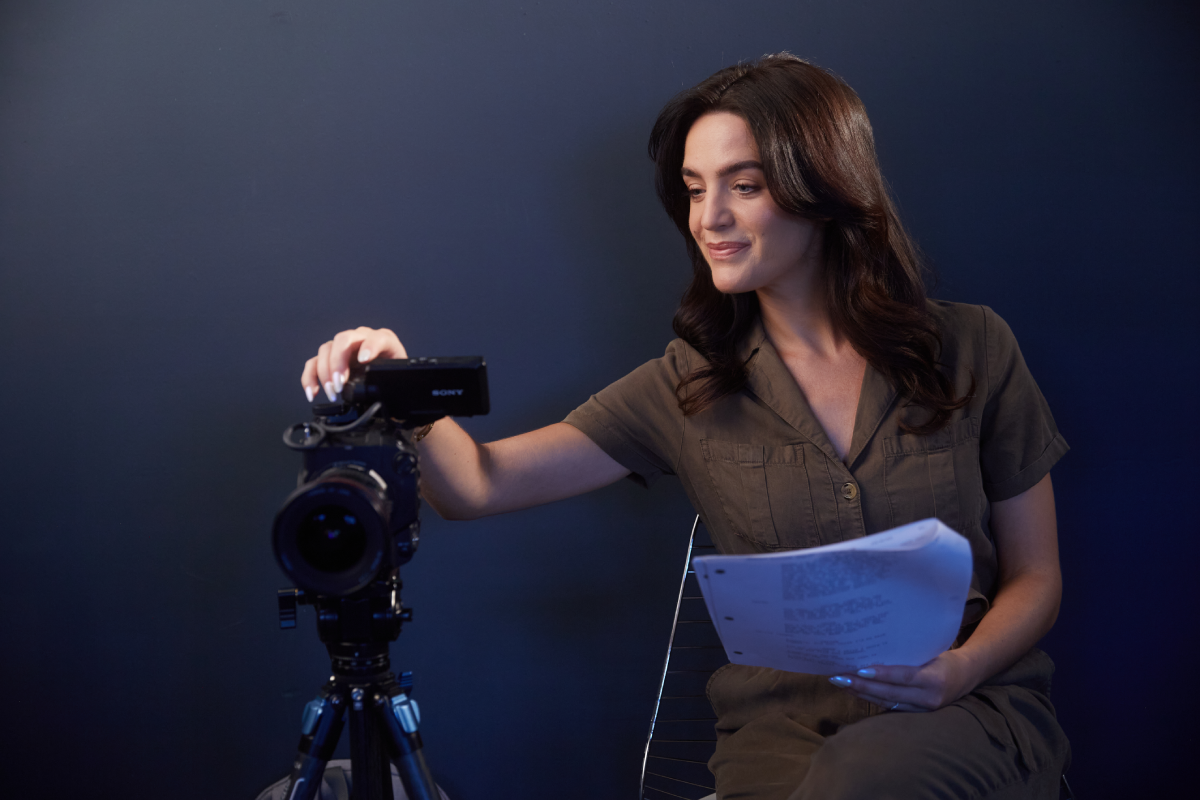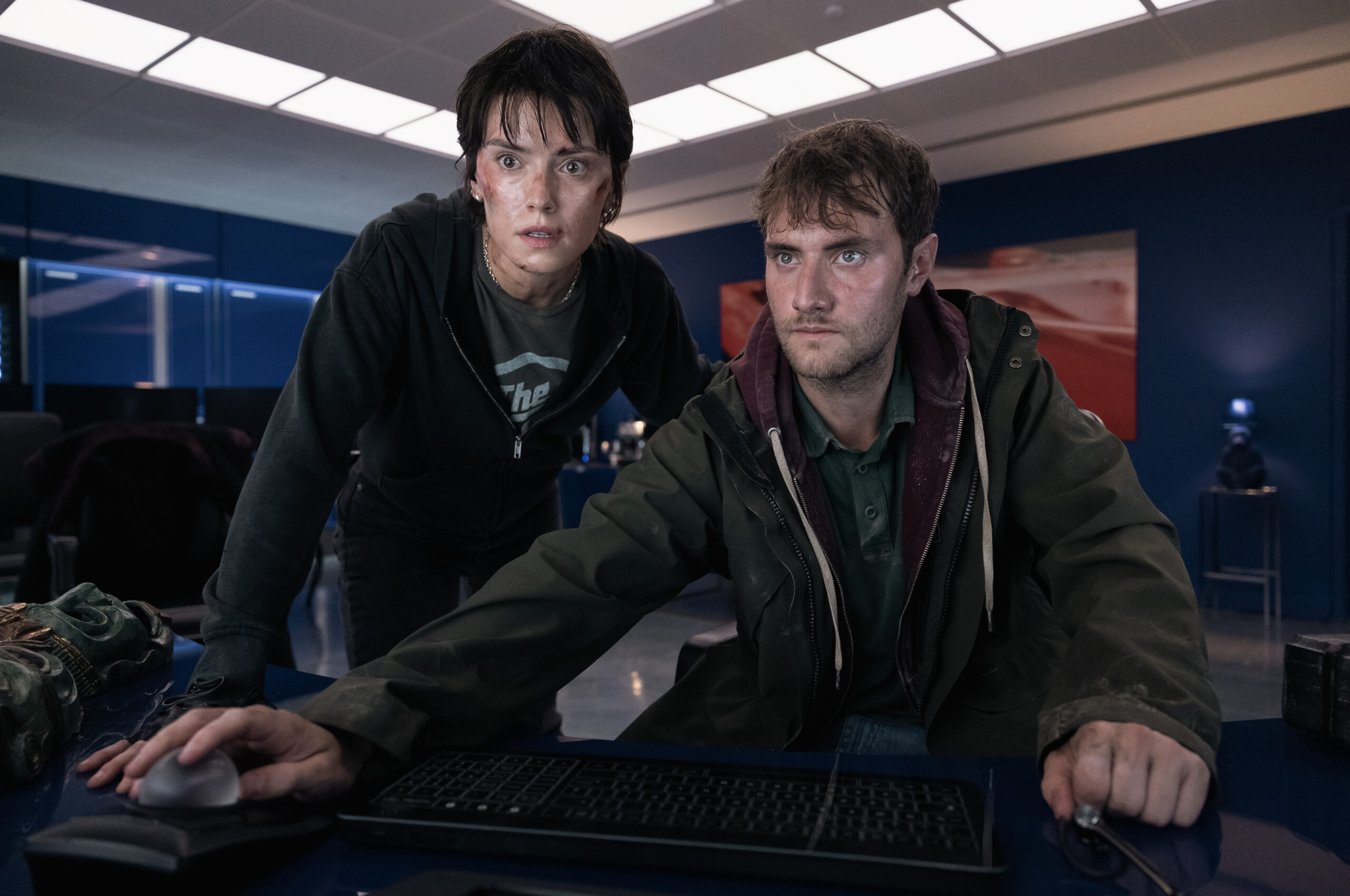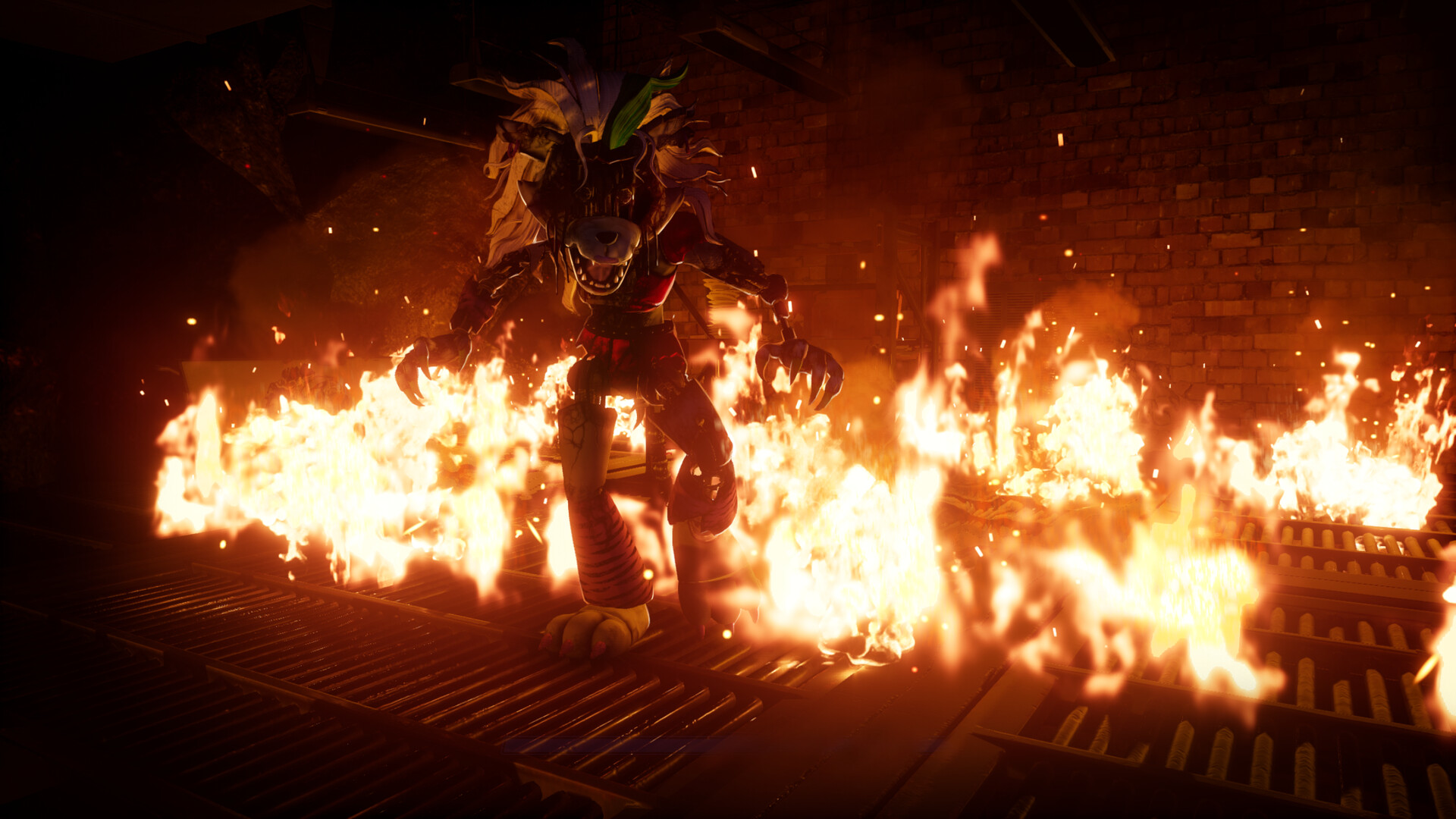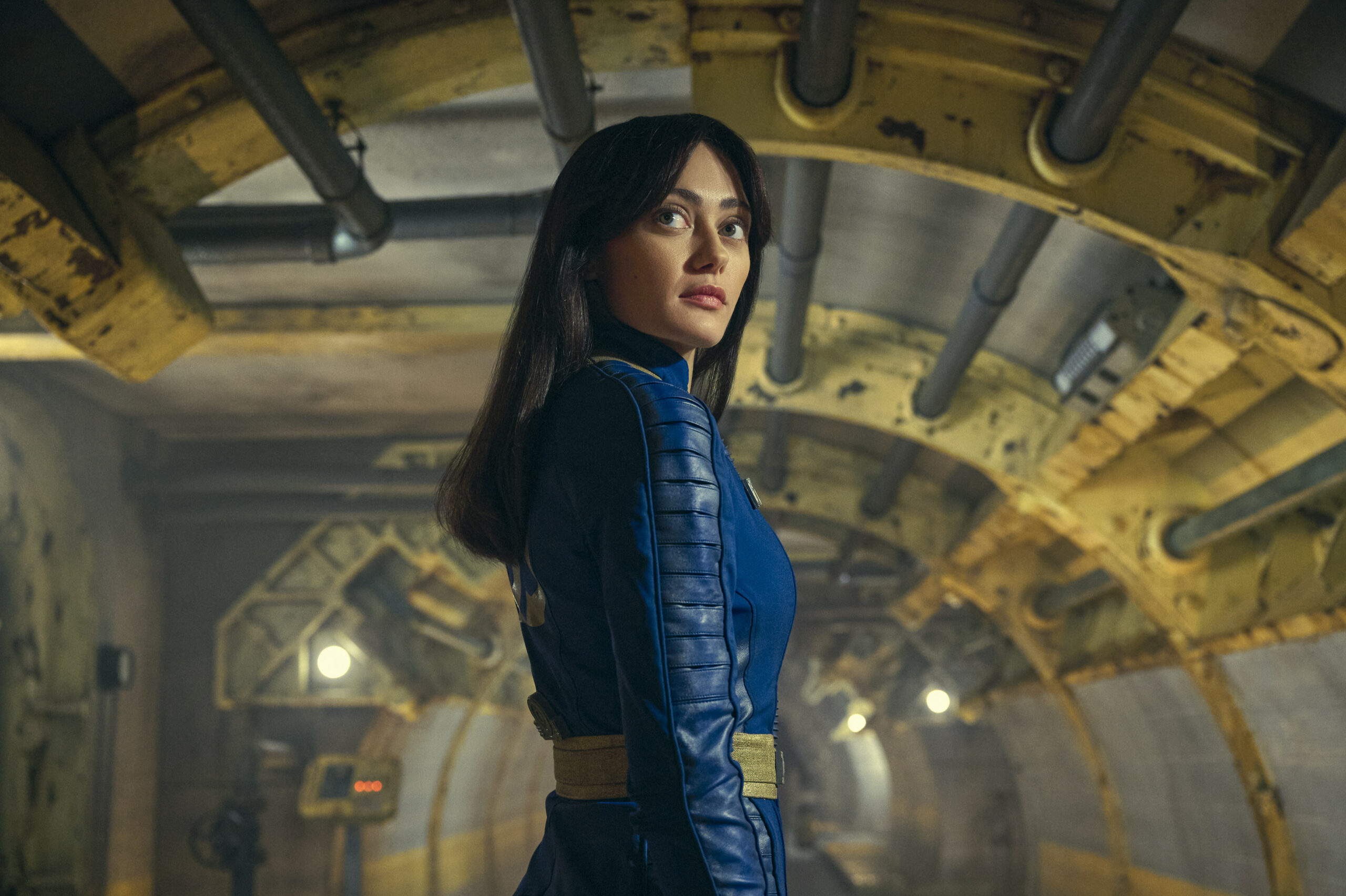Matthew Tuck tells us about his audition for the feature film ‘Cleaner’, working with Daisy Ridley and his hopes for other neurodivergent performers in the industry.
It’s never too late to become a performer. Matthew Tuck didn’t grow up wanting to become an actor. He didn’t go to drama school. Yet here he is – after working his way through youth theatres, extra work and any other acting experience he could sink his teeth into, he’ll soon be making his feature film debut alongside Daisy Ridley (Star Wars, Young Woman and the Sea) and Taz Skylar (One Piece, Boiling Point) in action-thriller Cleaner.
Matthew will play Daisy’s character’s brother ‘Michael’, who is autistic. As an autistic person, Matthew didn’t let this exciting opportunity pass him by. He self-taped for it as soon as he could and now he’s on the path of what will hopefully be a successful and varied career.
We had the chance to speak to Matthew about his audition for Cleaner, how working on a high-budget feature film set compared to previous work he’d done and his hopes for how the industry will continue to evolve to support neurodivergent performers like himself. Here’s what he shared:
Hi Matthew! How did you first get started as an actor?
My first experience was in primary school. I’m pretty sure every student had a primary school play to do. Mine had something to do with sea creatures, and I was supposed to play the ‘Hammerhead Shark’. I was meant to play it in the second half of the play and a girl in the first, but I wasn’t very confident in myself, so I decided to just drop out completely and do a very small part – a breakdancing mackerel. At that point, I didn’t really bother with acting.
At secondary school, there was an option for a drama class. I chose it because it sounded like the most fun. I thought it was going well at first, and then when it came to third year, the teacher acted more like a dictator. This is secondary school, not a professional drama school, but he treated it like it was.
Everything we did, we did wrong. He always barged up on stage and showed us how to do it in this very dramatic, overacting fashion, “Never turn your back to the audience! The lighting is all wrong! You’re not doing the right emotion, you’re not developing enough, you’re not moving enough!”
It wasn’t just me – everyone in that class hated working there because of the teacher. By the end of it, he’d really destroyed my self-confidence. I never wanted to touch acting or theatre ever again. Thankfully, at college, I found some very good friends that completely turned me around.
You didn’t approach theatre until the age of 18. How did you go about finding training and acting opportunities?
As I mentioned, my friends got me into it. Thankfully, my sister had a friend who actually does theatre, and he introduced me to one of my local theatres – the Salisbury Youth Theatre. I thought it would be a good opportunity for me with my confidence returned.
They were doing a play called Charlie’s Aunt. I decided to audition for a small part, but they gave me the main part of ‘Charlie’. I was like, “Oh my God,” but this time I wasn’t going to chicken out. I decided to take the chance, be confident, and just grab it.
I was actually very surprised how smoothly that whole thing went. When the performance ended, the whole audience got up out of their seats and applauded us. It felt exhilarating, intoxicating, addictive. It lit a fire in me. I thought, ‘I want to do this. I want to try doing this as a career.’
I decided that I wanted to learn more, so I joined another youth theatre. They taught me about improvisation and clowning, which is just another term for comedy, making people laugh, which I’m pretty good at. I was also told that extras are a thing.
When it was my first time being an extra, I was in a film called 1917 and then I had a small role as a guard in a film called My Lady Jane. I was also a businessman in a film called Scoop that’s on Netflix right now. It was very, very different from theatre. You get in costume, put your make-up on and out you go. The hours are long. It’s a hard job.
My friends at college studied directing and producing, so they then had some projects that they asked for my help with. So now I had theatre, extras work and student films under my belt. It felt like I should try putting it into a CV and sending it off and seeing where it takes me. That’s how I found my agent.
Could you tell us about the audition process for ‘Cleaner’?
The whole audition started while I was on holiday in Devon. I get an email from my agent, Sarah, saying there’s an audition for a film called Cleaner with a chance to work with Daisy Ridley. They were looking for someone to play her brother, who is autistic, and me being autistic, I thought, ‘This is a good opportunity.’
So it was the last day of my holiday, and also the last day of the auditions. The email said it was fine to delay it for one day, but panic got the better of me. I didn’t want to wait. What if they’d already found someone by then? Conveniently, the house’s wallpaper was completely grey – perfect for recording a self-tape.
After a few weeks, Sarah calls me and says, “They want you for a callback.” At this point, I’m like, “Oh my God, wait, they want me to actually meet them?”
Sarah says, “Yeah, the director wants to meet you, the writer and Daisy, so you can do the actual scene with Daisy herself in-person!”
So me and my mom went to London and we met the crew. My memory might not be right, but I’m pretty sure that three other people were auditioning for ‘Michael’, same as me, so I had a one in four chance of getting it. I told myself that even if I didn’t get it, this is still a very good experience. This time, I actually did the audition with Daisy. Then, maybe a few weeks after that, I get the call saying, “You got the part!” I was over the moon.
The film stars Daisy Ridley and Clive Owen. What was it like working alongside such well-known actors?
I didn’t actually get a chance to work with Clive Owen because I didn’t have any scenes with him. However, I did work with a guy called Taz Skylar, who is growing in popularity because he’s in a Netflix show called One Piece, which is based off a very popular anime. I got a chance to talk to him.
Then, as you said, I got to work with Daisy, who, as we know, is very big – she got her first role in a very big franchise, so she knows what she’s doing. She’s handled that kind of pressure before. Starstruck is probably the best word to describe it. I got to work with these professionals, but they were also just like me – people doing their job the best they possibly can.
I knew I had to act professionally, because as an actor myself, I’ve worked in theatre and extras, and to me it was a different version of it. So I maintained my professionalism and asked all the questions: How do you handle this? How do you cope? What’s the best advice you can give me – who is someone new? They gave me tons of advice. I could probably go on for an hour or so about all the advice they gave me!
How does working on the set of a high-budget feature film compare to the other work you’ve done before?
All that experience I had from theatre and extras work was actually incredibly beneficial. It made me feel like it’s different, but not too different from what I’d originally been working with.
I won’t lie – when I did my first ever scene as a main character in a big production, I was kind of like, “Okay, this camera is looking directly at me and I’ve got to just do what I normally do, but I’ve got everyone around me doing lighting and microphone and camera. It’s a little overwhelming, but I got this, I can handle this.”
It was a little nerve-wracking at first, but once I managed to wrap my head around doing my first two takes, the overwhelming burden just disappeared.
Normally, as extras, we get a big tent with a few make-up artists doing their thing. In this role, I’ve got my own trailer, which I’m not used to, and then I go into another trailer to get my make-up done. Because I’m the one in front of the camera now, more make-up needs to be put on me. And then, of course, I’m having some normal conversations with everyone around me and Taz and Daisy.
After the make-up and my costume is done, I go into the set. I’m not used to walking into big sets, and I’m like, “Oh my God, all this work!”
I’m seeing everything behind the scenes – this is how that works, and all these people are working just as hard as me. When I have to go on, they give me a cue, and I do the scene a few times, and then we move on to another scene or maybe the same scene with a different camera angle. I’m also getting very specific directions – what emotion and movements I have to do, and all the cues and sets.
How did you deal with your nerves in this high-pressure environment?
I had to learn to adjust quickly. I didn’t want to disappoint anyone or delay things or give a bad first impression. I got very lucky because the crew I worked with was very supportive. They were very adjusting and helped me integrate myself into this new world I’m walking into.
Thankfully, the writer actually has an autistic son, so he knew how to talk to and approach someone like me and taught everyone else about how I work. Me telling them that I’m autistic, me opening up about it, actually helped them understand, “Oh, so he can handle this. Maybe he has a little struggle here and there, but if we can accommodate his struggles, make it easier for him to approach this, then everything will go smoothly.”
I think all of it came down to working with an amazing crew who helped me adjust a lot easier.
What more do you think could be done in the industry to support neurodivergent actors?
I want to be more open. Autism and neurodivergence – it’s not just one set thing. There are so many different levels and variants on how to approach it.
Think of three branches on a tree. One branch may grow much longer and two branches may be smaller, or one branch may be longer, one branch may be medium, one branch may be small, or maybe two branches are small and one is medium. It’s very hard to describe, but neurodivergence is not a set thing. There are so many different ways and aspects to the people who have it.
My best advice is that everyone needs to be more open and give people like me an opportunity, not just as a set cast – “He can only play an autistic person,” but more like, “He may have autism, but he can work, we’ve just got to adjust to how he works.”
Neurodivergence has its pros and cons, I won’t deny that. There are difficulties in certain aspects that we all enjoy, but we also have a lot of different strengths that exceed others. People normally don’t think we do. If you look at us more closely and in a better light, I can say that, granted, we may not do everything in the set way that a neurotypical person does, but if you give us an opportunity to shine, there are methods to everything we do. If you’re more open, understanding and supportive, I guarantee that we can surprise you in a lot of different ways.
What can performers and industry professionals do to make sure they’re supporting neurodivergent performers through the casting process and on set?
Take it slow. Don’t be afraid to ask us questions and tell us to be more open, because some people are a lot more nervous about opening up about their neurodivergence. You’ve just got to make it clear and don’t be afraid – you won’t offend us. Tell us your difficulties, what your strengths are and what we can adjust to – anything you can do to make us feel a lot more at ease.
Ask us any questions about how we specifically work, because every person works in their own individual way. Ask what we can handle, what things make us uncomfortable and how can we adjust that to make you more comfortable, not as nervous and more open and just more approachable for us to talk to, so that you can work well with the team. If you don’t work well with the team then nothing goes well. Teamwork makes the dream work!
We all have our weaknesses. Neurodivergent people, like me, may have some in a different manner. Just be patient, help us adjust and help everyone understand that we can work hard – maybe even harder than you expect us to.
What do you now know about the industry that you wish you’d known when you first became a performer?
I’d say:
- Learning your lines takes commitment.
- Learn your placements and cues on the set or stage.
- Work with your team. If you don’t work with your team, nothing goes well and you’re just going to be miserable throughout the entire experience.
- Breathe when you’re on stage. The first mistake I ever made, I had a long monologue as Charlie and they noticed me taking breaths. One idea of diaphragm training is that you don’t breathe from your lungs, you breathe from your stomach so you can get all your lines in in that one short breath. So diaphragm training is actually quite important and rehearsals where it’s repetition, repetition, repetition.
It’s simply hard work. That’s what I would tell myself and anyone else who wants to try this.
What would be your top tip for other aspiring actors?
Don’t be like me. Don’t lose confidence in yourself. The most important thing is to not ever give up. Don’t give up on yourself. Don’t think this is too hard.
The whole lesson of life is that you’ve got to try something once to find out if you like it. And even if you don’t, maybe it’s not actually acting that you like, maybe you prefer working behind the scenes – costume, set or make-up design.
I think acting might actually be one of the easier jobs when it comes to the industry. Sometimes, I’ve got to get up early or late depending on the shift, but the crew are there before me, which means they have to wake up earlier, they have to get there earlier than I am and then they have to pack up all that equipment later.
It’s not all focused on one thing. It’s about finding your weaknesses and finding what you’re good at.
Finally, what would be your dream role?
I’d really like to see if I could get myself into James Bond.
Thank you, Matthew, for sharing your casting experience with us!
‘Cleaner’ will be released in the UK and Ireland on Sky Cinema on 21 February 2025.
Take a look at our website for more casting stories and interviews with casting directors and agents.


















